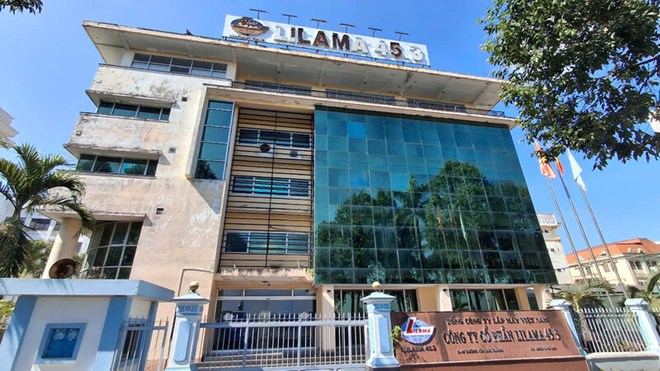Minimum salary, minimum worker life
Up to now, the whole province of Quang Ngai has nearly 72,000 workers and laborers in units with trade unions managed by the Provincial Labor Federation, mainly concentrated in Dung Quat Economic Zone and industrial parks in the province (accounting for more than 63,200 people).
Enterprises operating in Dung Quat Economic Zone and industrial parks in the province maintain relatively stable operations. Thanks to participating in the growing supply chain and consumer goods market, the lives, jobs and income of workers are initially guaranteed.
However, according to statistics, the average income of union members, workers and civil servants in the area is only about 6.5 million VND/person/month. This salary is only enough to meet basic living needs, not enough for workers to accumulate or support their families stably.
Mr. Pham Thai Duong - Chairman of the Trade Union of Dung Quat Economic Zone and Industrial Parks of Quang Ngai province - said that labor relations in the area are generally relatively stable. Most enterprises comply with labor laws, ensuring salary and insurance regimes for employees.
However, there are still some businesses facing difficulties, especially businesses in the fields of services, wood chip production, mechanics, leading to unpaid wages and insurance debts. Many workers do not fully understand the long-term benefits of social insurance, so when facing financial difficulties, they choose to withdraw social insurance at one time.

In large industrial parks such as Dung Quat Economic Zone (Binh Son District), VSIP Quang Ngai Industrial Park and Tinh Phong Industrial Park (Son Tinh District) - where tens of thousands of workers are concentrated - housing issues are becoming increasingly urgent. Although the salary is not high, most workers still have to rent a room in cramped, damp rooms with high rental prices. Many people have to travel dozens of kilometers a day because they cannot afford to rent a house... near their workplace.
compact rooms, high costs, hoarding
On June 24, speaking with a reporter from Lao Dong Newspaper, Ms. Lan (character's name has been changed), working at Tinh Phong Industrial Park (Son Tinh district), shared: "I have been working as a worker at a company here since 2017. Working 8 hours/day means a salary of about 6 million VND/month, if overtime increases to 10 hours/day, it will be nearly 8 million VND. I am still single but my salary is only enough to cover basic expenses, I cannot accumulate. Every time I go to the market to buy a bunch of vegetables, fish... I have to calculate very carefully but still lack them first and then. If I got married, it would definitely be much more difficult.
According to Ms. Lan, because she works far from home, she has to rent a small room of less than 10 square meters with a friend. Electricity prices are calculated at VND3,000/kWh, plus water costs, Wi-Fi... causing the total cost of living of the two to reach about VND1.5 million per month.
"Every year, at company meetings, workers propose to increase salaries, but the business owner does not agree" - Ms. Lan added.
Not only low salaries, the situation of unpaid wages and social insurance in Quang Ngai province is also at an alarming level. According to statistics from the Quang Ngai Provincial Federation of Labor, as of April 30, 2025, there were 700 units and enterprises that were late in paying social insurance, health insurance, and unemployment insurance for 3 months or more for 3,456 employees, with a total amount of late payment (including interest) of over 129.8 billion VND.
To protect the legitimate and legal rights and interests of workers, the Standing Committee of the Provincial Federation of Labor recently issued a document requesting the People's Committee of Quang Ngai province to direct relevant departments, branches, sectors and localities to take drastic action. It is necessary to strengthen inspection and supervision of compliance with labor laws, strictly handle units that owe wages and social insurance, and not let workers suffer.











